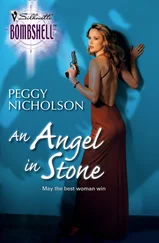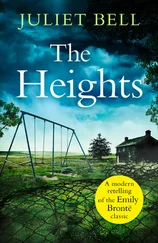“Think about those you wish to help,” I told Nan.
“Aye, what else do ye think is on my mind—a recipe for sheep dip?”
I laughed in spite of the gravity of the situation, and multicolored motes danced in the air. I could hear William humming upstairs as he helped Una wind the yarn. It was the lullaby I’d first heard Bill sing, the one William’s mother lulled him to sleep with when he was a baby. Now he was singing it to poor bereaved Una. Would Una want to hear a lullaby, I wondered, after losing her grandson? But after a few minutes I heard Una’s voice join in, weak and quavering at first but growing stronger. Nan, too, began to hum the tune and then sing, her eyes shining in the dim cellar. I knew she was thinking of her sister but also of William and baby Ian and all the others whom she had loved and lost. I began to sing it, too. I thought of Bill crooning this song more than three hundred years in the future. I thought of the words of a simple child’s lullaby connecting the two men—the one I had loved and the one Nan loved—across time. As I sang, the colored threads leapt from my fingers to Nan’s—a luminescent skein binding us together.
The glow lit up Nan’s face, washing away her fatigue and grief. “It feels … alive !” she said with wonder, a small, tentative smile beginning. “Sometimes when I am spinning a thread from wool, I can feel the life of the sheep it came from and the sun that beat down on it and the grass and heather it chewed and even the bees that buzzed about the flowers. This thread …” She spread her hands wide apart, and the threads separated from mine and formed a skein, much like the one that William held upstairs for Una. As Nan pulled her hands in and out, the skein thickened. “ This feels as if it contains all of life in it—the sun and the moon, the barley growing in the fields, the creatures in the wood, each beating heart in the village …” As she named each type of life, I saw a new-color thread spring to life. I reached out and pulled a thread of each color from her skein.
“I was able to use my love for William to protect him, but you can use your love for the whole village to protect everyone in it,” I said.
“Mmppff.” Nan made a soft sound in the back of her throat. “I’m no’ so sure I love every soul in Ballydoon, but, aye, I love the place, and I know that if this madness has its way, it willna be the same for many a year. If I could weave a mantle of this stuff to protect all of Ballydoon, I would. But we canna do it just the two of us. Together we make the warp. We need someone to be the weft.”
“Who do you think we can trust that would be able to do it?”
Nan tilted her chin up to the floor above us. “Una could, only …”
“Do you think she’s too grief-stricken over baby Ian?”
“I dinna ken. It isna just the grief. When she knows there would have been a way to save Ian if we had known it afore …”
“Do ye think I’m that puir an auld woman as I would begrudge the life of my neighbors because I couldna save one of my own?”
Una’s voice came from the top step of the cellar. Nan and I looked up at her guiltily. Her shape in the doorway was backlit by a golden glow that I thought was the lamplight behind her, but when she came down the steps she brought the glow with her. The mantle I’d spun for William had spread over her. She walked toward us, her eyes on the threads spread out between us. When she reached us, she held out her hand and cast a thread that intertwined with ours. Another motion pulled it taut. I felt the threads between Nan and me grow heavier and brighter, strengthened by the power of Una’s love for baby Ian. Some might let their grief turn them away from the needs of others; some would use their grief to save others. I saw in the fierce determination of Una’s face that she would honor Ian by saving who she could. Her grief—and the memory of baby Ian—was our weft.
We worked until dawn, weaving four cloaks made of light. When we were done, we each draped one over our shoulders. William went to rally the men of the village. Nan said we ought to start with the miller’s house.
“There are others who are sicker,” Una protested, “who live closer and are more worthy.”
“We can’t go judging who we’ll save by how they’ve treated us,” Nan snapped.
“Verra well,” Una said, bristling, and quickened her step. When Una was a few paces ahead of us, Nan spoke in a low voice to me.
“There’s another reason we must start with the miller’s family. Perhaps you do not know that the miller’s surname is Brodie.”
“No, I didn’t, but why—” Then I remembered. “The same Malcolm Brodie who married the first Cailleach?” I asked.
“Aye,” Nan replied. “He’s no’ been a happy man since Katy left him, but he’s raised her bairn along with his two other children.”
“Mairi?” I asked. “Cailleach’s daughter?”
“Aye. I canna say I understand these matters, but if I understand what you told me, then I know that if Mairi dies …”
“I’ll never be born,” I finished for her, my mouth going dry. Nor my father or his father … “That’s why you want to start with the miller’s house.”
“Aye. You willna be of much help to us if ye vanish into thin air. I only hope we’re not too late.” She pointed to the small stone cottage that sat beside the river Tweed. The mill wheel that would ordinarily be spinning was still, and there was no smoke coming from the chimney.
Nan knocked on the door, but no one answered. Giving me a worried glance, she turned the knob, and the door yawned open with an ominous creak. Nan and I looked at each other again, but Una squared her shoulders and marched past us, the mantle around her shoulders blazing like a battle flag.
Hers was the only light inside the dim, fetid cottage. The hearth was cold, and heavy homespun cloth hung over the windows. On the floor by the fireplace, the same cloth was draped over a mound that looked like a sack of potatoes. But it wasn’t a sack of potatoes. I knew that even before Una knelt and pulled aside the cloth, revealing the blackened face of the miller, Malcolm Brodie.
“Puir lad,” Nan said, kneeling beside him. “He never had much luck. He lost two wives and now this had come on him.” I heard a low moan. I thought it came from Nan, but she looked up at the sound, as startled by it as I was. It seemed to be coming from directly above our heads.
“The loft,” Una said.
The ladder that ordinarily would have led up to the loft had fallen over. We righted it and Nan started up first. I followed her into the unlit upper story as if climbing into a dark cloud. A stinking cloud. The reek was so strong it seemed to have weight—a rank combination of excrement, vomit, and blood. When the odor entered my nose and mouth, it felt as if someone were stuffing fouled gauze down my throat. Taking one hand off the ladder, I drew the glowing tartan over my mouth and nose. The smell receded just enough to make it … well, I wouldn’t call it bearable , but somehow I did bear it. The glow from my tartan illuminated the scene in the loft. Three bodies lay on a straw pallet—the miller’s three children, one of whom was my multi-great-grandmother. I stooped—the slanted ceiling was too low for me to stand—over the first one and looked into the blackened face and staring eyes of a teenage girl. Too old to be Cailleach’s child, who would be only six now—the age of the girl who lay by her side. They had pushed their pallets close enough so that they could hold hands. Their fingers were still intertwined. The younger girl, Mairi, grasped in her other hand a cloth doll. Her eyes were closed, but when I knelt by her side, they flew open.
Читать дальше
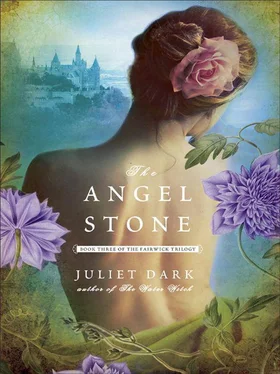

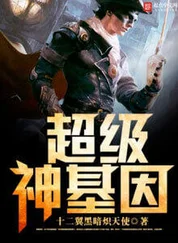


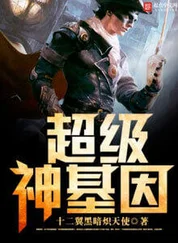


![Twelve Winged Dark Burning Angel - Супер Ген Бога. Том 2 [101-200 главы]](/books/412125/twelve-winged-dark-burning-angel-super-gen-boga-tom-2-101-200-glavy-thumb.webp)
![Twelve Winged Dark Burning Angel - Супер Ген Бога. Том 1 [1-100 главы]](/books/412126/twelve-winged-dark-burning-angel-super-gen-boga-tom-1-1-100-glavy-thumb.webp)
